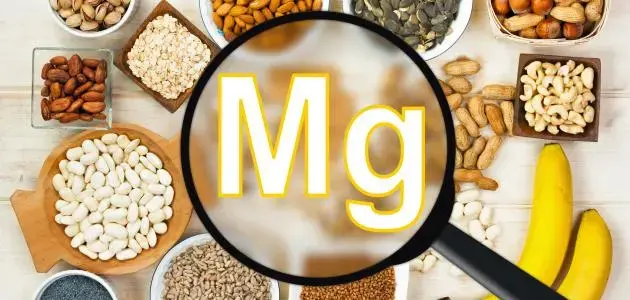Magnesium is naturally found in both plant and animal foods. Here are some common sources:
Dark Leafy Greens
Veggies like spinach, kale, Swiss chard, and collard greens are packed with magnesium, vitamins, and other minerals. You can eat them raw or cooked. For example, one cup of raw kale has about 7 mg of magnesium, which is roughly 1.7% of your daily needs—and only 7 calories!
Nuts and Seeds
Almonds, cashews, peanuts, and pumpkin seeds are great snacks loaded with magnesium. For instance, 28 grams (about an ounce) of roasted almonds gives you 80 mg of magnesium—that’s nearly 19% of your daily requirement.
Low-Fat or Fat-Free Yogurt
Yogurt is another solid magnesium source. A 170 ml serving has about 29 mg of magnesium, covering around 7.6% of your daily intake.
Dark Chocolate
A 28-gram piece of dark chocolate packs 64 mg of magnesium, about 16% of what you need daily. Plus, it offers iron, copper, manganese, prebiotic fiber, and antioxidants.
Legumes
Beans, lentils, chickpeas, peas, and soybeans are super nutritious and rich in magnesium. One cup of cooked black beans provides 120 mg, which is 30% of your daily goal. They’re also high in potassium, iron, protein (great for vegetarians), fiber, and have a low glycemic index.
Whole Grains
Wheat, oats, barley, buckwheat, and quinoa all contain magnesium. For example, 28 grams of dry buckwheat has 65 mg of magnesium (16% daily value). Whole grains also offer B vitamins, selenium, manganese, and fiber.
Fatty Fish
Fatty fish like salmon, mackerel, and halibut are not only rich in protein and vitamins but also magnesium. A 178-gram salmon fillet contains 53 mg, which is 13% of your daily need.
Avocado
One avocado has about 58 mg of magnesium, making up 16% of your daily intake. Plus, it’s loaded with healthy fats, vitamin K, and B vitamins.
Other Foods with Magnesium
| Food | Serving Size | Magnesium (mg) |
|---|---|---|
| Fermented yogurt | 1 cup | 30 |
| Tofu | ½ cup | 37 |
| Cooked shelled edamame | ½ cup | 50 |
| Cooked quinoa | 1 cup | 118 |
| Roasted cashews | 28 grams | 74 |
| Oil-roasted peanuts | ¼ cup | 63 |
| Soy milk | 1 cup | 61 |
| Whole wheat crackers | 2 large pieces | 61 |
| Peanut butter | 2 tbsp | 49 |
| Whole wheat bread | 2 slices | 46 |
| Baked potato (with skin) | 99.2 grams | 43 |
| Cooked brown rice | ½ cup | 42 |
| Instant oatmeal | 30 grams | 36 |
| Canned kidney beans | ½ cup | 35 |
| Medium banana | 1 | 32 |
| Unsweetened cocoa powder | 1 tbsp | 27 |
| Milk | 1 cup | 24-27 |
| Grilled chicken breast | 85 grams | 22 |
| Lean ground beef (90% lean) | 85 grams | 20 |
| Cooked broccoli | ½ cup | 12 |
| Cooked white rice | ½ cup | 10 |
| Medium apple | 1 | 9 |
| Medium carrot | 1 | 7 |
Recommended Daily Magnesium Intake
Here’s how much magnesium you generally need each day:
- Babies 0-6 months: 30 mg
- Babies 7-12 months: 75 mg
- Kids 1-3 years: 80 mg
- Kids 4-8 years: 130 mg
- Kids 9-13 years: 240 mg
- Boys 14-18 years: 410 mg
- Girls 14-18 years (including nursing moms): 360 mg
- Pregnant teens 14-18 years: 400 mg
- Men 19-30 years: 400 mg
- Women 19-30 years (including nursing moms): 310 mg
- Pregnant women 19-30 years: 350 mg
- Men 31+ years: 400 mg
- Women 31+ years (including nursing moms): 320 mg
- Pregnant women 31-50 years: 360 mg
When to Consider Magnesium Supplements
Doctors might suggest magnesium supplements if you’re low on magnesium or dealing with certain health issues like constipation, indigestion, high blood pressure during pregnancy, irregular heartbeats, asthma, headaches, osteoporosis, chronic fatigue, or cerebral palsy.
People with higher risk of deficiency include those with Crohn’s disease, celiac disease, type 2 diabetes, or who take proton pump inhibitors for acid reflux, since those meds can lower magnesium levels.
What Magnesium Does in Your Body
- Heart health: Magnesium helps balance calcium to keep your heart muscle working smoothly and your heartbeat steady.
- Muscle relaxation: It naturally calms muscles, preventing cramps and spasms.
- Energy production: Magnesium is a key part of over 300 enzymes that help your body make energy.
- Bone health: Supports growth and keeps bones strong.
- Nervous system: Helps nerves and muscles work properly.
- Calcium absorption: Works with your parathyroid gland to regulate calcium levels.
- Immune support: Helps keep your immune system strong.
- Blood sugar control: Assists in managing healthy blood sugar levels.
Quick Magnesium Overview
Magnesium is one of the essential minerals your body needs in fairly large amounts. It’s involved in almost every tissue and nerve, playing a major role in energy production, muscle function, and maintaining heart and bone health. Most magnesium lives in your bones and inside cells, with only a small amount in your blood.
You can get magnesium naturally from many foods, it’s often added to some products, and it’s available as a supplement.
Leave a comment
Your email address will not be published. Required fields are marked *




